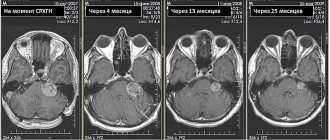Definition
Most adults require about 7-9 hours of sleep. However, there are also individual variations. For example, some may only need 6 hours of sleep, while others may need up to 10 hours.
Long naps usually do not affect the health of people who need that extra hour or two of sleep. Likewise, this does not apply to the extended sleep that is needed when recovering from illness, extreme exercise, or travel-related issues such as jet lag.
Long-term sleep affects the health of people who regularly sleep more than their body needs, for example, for 11-13 hours.
How to improve sleep if you sleep too much
When you visit a doctor, you and a specialist should find out the main reason for prolonged sleep. The doctor will ask you several questions to help make a preliminary diagnosis. However, only diagnostic measures can accurately determine hypersomnia.
If prolonged sleep is associated with diseases of the nervous or cardiovascular systems, first you need to treat them. After all, after eliminating the main causes of hypersomnia, the duration of sleep itself will most likely normalize.
Above all, it is important to maintain proper sleep hygiene. And to do this you need to follow the recommendations presented below.
Rules for good sleep
- Go to bed and wake up at the same time . If you are used to going to bed at 11 pm and getting up at 7 am, stick to this routine every day, even on weekends. This is necessary for the body to develop the habit of waking up and preparing for sleep at certain hours.
- Get up immediately after the first alarm rings . To restore a healthy sleep pattern, forget about the “snooze” button on your smartphone alarm clock. By postponing getting up for 5-10 minutes, the brain goes back to sleep, after which it is much more difficult to get out of bed. To make getting up in the morning easier, use special apps for your smartphone. For example, software alarm clocks are great, to turn them off you need to solve an arithmetic problem or take a photo of a QR code, say, in the bathroom.
- Take a contrast shower in the morning . Getting under cold water after getting up seems like a real execution for the body. However, a drastic measure will help you recover faster after a long sleep. Let us immediately make a reservation that contrast showers can be taken by healthy people without problems with the heart and blood vessels.
- Do exercises . Swinging your arms and legs after waking up will improve blood flow throughout your body. Thanks to this, you can wake up quickly.
- Eat at least 5 vegetables and fruits daily . Many plant foods contain enough vitamins and minerals that they can be used instead of vitamin supplements to improve sleep.
- Ventilate your bedroom before going to bed . Fresh air contains more oxygen, which the brain needs for good rest.
- Finish physical activity at least 2 hours before bedtime . During active muscle work, adrenaline is released into the blood, a stress hormone that increases the heart rate. In this case, the effect of the hormone completely disappears only 2 hours after completion of the exercise.
Read more about ways to normalize sleep here.
Treatment of hypersomnia with medications
Sleep aids should not be taken without a doctor's prescription. Firstly, their action will most likely eliminate the symptoms and will not affect the very cause of prolonged sleep. Secondly, it is difficult to choose the right drug to normalize sleep on your own, since pharmacies mainly sell sleeping pills that increase the time of night rest or improve falling asleep. Thus, if you want to get rid of hypersomnia, visit a general practitioner or a sleep specialist.
Long sleep - reasons
While occasional long naps are normal, regular long naps may indicate an underlying health problem.
There are several links between health conditions and long sleep periods.
Disturbed sleep cycle
Numerous problems can cause sleep cycle disturbances. Every night the body goes through four or five different cycles. Cycles are important to feel refreshed the next day. Interruptions in the sleep cycle can lead to drowsiness in some people. Such interruptions may occur due to:
- loud noise
- bright lights
- consuming caffeine before bed
- pain
- restless legs syndrome
- bruxism, or teeth grinding
Other conditions can also cause disturbances in the sleep cycle.
Narcolepsy
Narcolepsy is a sleep-related condition that can cause severe sleepiness throughout the day. The condition does not go away after a full night's sleep or with a nap during the day. Narcolepsy may also cause other sleep problems, in addition to physical and cognitive symptoms.
Hypothyroidism
Hypothyroidism
may also affect sleep patterns in some cases. An underactive thyroid gland can cause drowsiness even after a full night's rest. This may lead to daytime sleepiness. Other common symptoms of hypothyroidism include feeling cold, muscle weakness, and unexplained weight gain.
Obstructive sleep apnea
Obstructive sleep apnea can also cause sleepiness. With obstructive sleep apnea, a person stops breathing for a short period of time. This usually happens several times a night and each time disrupts the sleep cycle. This can lead to excessive daytime sleepiness and a need for more sleep to feel rested.
Other symptoms of obstructive sleep apnea include:
- difficulty concentrating
- memory problems
- headaches or dry mouth when waking up
- frequently waking up to urinate
Depression
The relationship between sleep problems and depression is bidirectional. As noted in one study, sleep disturbance is both a risk factor and a symptom of depression. Other research hypothesizes that many forms of sleep disorder are a risk factor for depression, including narcolepsy, circadian rhythm disorders, and insomnia.
Although it usually manifests as insomnia or difficulty falling asleep or staying asleep, hypersomnia can occur in some cases of depression. This may be due to a disrupted sleep cycle (leading to long periods of sleep to compensate for sleep loss) or problems such as inflammation. However, the exact reason remains unclear.
Use of drugs
Some medications can also cause excessive drowsiness as a side effect, which can lead to prolonged sleep. If excessive sleepiness due to medications is difficult to treat, you should talk to your doctor about adjusting your dose or switching to a new medication.
Idiopathic hypersomnia
In some cases, even after making a full diagnosis, doctors may not know the underlying cause of prolonged sleep. This is known as idiopathic hypersomnia. A person with this condition may simply have excessive sleepiness and sleep without any specific reason.
How does hypersomnia manifest itself?
You should think about the presence of pathology if the daily sleep duration exceeds 10 hours a day . In this case, a special sign of the disease is fatigue, which occurs immediately after waking up. A person cannot wake up completely, which is why he sets several alarm clocks. However, he often does not hear them or simply postpones getting up.
Constant drowsiness impairs alertness and reduces reaction speed.
If a person sleeps a lot, they may also experience headaches, dizziness, and muscle weakness .
Daytime sleepiness may be inconsistent. Therefore, it is difficult to make a correct diagnosis in this case. If drowsiness is periodic, the presence of a disorder should be judged by other symptoms. For example, it becomes difficult for a person with this problem to express his thoughts, which is why from the outside he may look like an insecure person. Well, this state of affairs leads to difficulties in relationships with people.
When answering the question why a person sleeps a lot, hypersomnia is not always meant. Sometimes prolonged sleep indicates a disease called narcolepsy . This pathology is characterized by sudden attacks of irresistible drowsiness. Moreover, from the outside it may look like fainting, but in this situation the brain simply “turns off” and the person suddenly falls asleep. Narcolepsy often manifests itself on public transport, while studying, and in other cases when a person’s attention is not occupied with anything.
Narcolepsy is especially dangerous in drivers. After all, having fallen asleep while driving during another attack, a person can easily get into an accident , harming himself and others.
Is it dangerous?
While occasional long naps are not necessarily harmful to health, complications from regular long naps can put other conditions at risk.
Researchers found that people who slept too much or too little were significantly more likely to be overweight or obese. The review found that there is also a link between regular long-term sleep and a range of complications, including high blood sugar and risk factors for cardiovascular disease. Risks vary by gender and individual factors.
Do you need to treat drowsiness and how to do it?
In fact, the question “should I treat or not” should not arise at all. Drowsiness, at a minimum, does not allow a person to fully enjoy life, and at maximum, this at first glance unpleasant for a person, but, in general, seemingly harmless symptom in many cases is a reflection of serious health problems. Countless cups of strong coffee, energy drinks, psychostimulants, most of which are simply prohibited in our country - this is a dead end. You need to be examined, find the cause of the problem and eliminate it. But this should be done under the supervision of an experienced doctor. You should not bring your condition to a critical point; it is better to contact a competent somnologist and undergo an examination followed by a course of treatment.
How to prevent long sleep
Sleep can fuel habits that can cause long periods of sleep. For this reason, it is important to break the cycle and return to a normal sleep pattern. How to do it:
Set an alarm
Setting an alarm for the same time every day helps the body regulate its habits and return to its natural rhythms.
Don't hit the snooze button
Getting out of bed completely will help wake up your body and prevent you from falling back asleep.
Avoid daytime naps
Some people who sleep long hours at night may benefit from avoiding naps during the day. Napping can disrupt the body's sleep patterns and promote prolonged sleep. On the other hand, some may find that a short nap of just 10-20 minutes helps them feel rested.
Avoid light before bed
Bright, short-wavelength light from electronic devices stimulates the brain, causing you to stay on your feet longer than necessary.
For people whose bodies are sensitive to this light, it is best to avoid using electronic devices and all light sources before bed.
Keep a sleep diary
Your doctor may ask you to keep a sleep diary, in which you will need to detail your usual sleep habits and daily routine in a journal, including when you sleep and when you are awake.
Keeping a sleep diary can provide your doctor with the information needed to diagnose any underlying health problems.
If a person sleeps a lot, what diseases can this lead to?
In general, health problems are more often caused by lack of sleep. However, long sleep is also associated with some serious diseases. Let's sort them out.
- Cardiovascular pathologies . First of all, oversleeping leads to disruption of the heart, which is often accompanied by an increase in blood pressure. Because of this, a person who sleeps for a long time increases the risk of heart attack and stroke - the leading causes of death in the world.
- Depression . Extending your sleep time can have a negative impact on your quality of life. With hypersomnia, a person does not have time to go about his business due to constant drowsiness and prolonged sleep.
- Diabetes mellitus type 2 . As sleep time increases, the body's tissue sensitivity to insulin, the hormone that regulates sugar levels, decreases. This is why people who sleep 10-12 hours are more likely to develop diabetes.
- Migraine . Prolonged sleep leads to frequent headaches that occur after getting up.
Hypersomnia, coupled with one or more of the above diseases, significantly worsens a person’s psychological mood. Therefore, treatment of the disease should not be shelved. You need to contact a specialist as soon as possible.
Too much sleep: negative consequences
When we constantly do not get enough sleep over a long period, it has a detrimental effect on our well-being, mood, and appearance. Chronic lack of sleep makes us lethargic, apathetic, has a bad effect on brain function, skin color worsens, and may even cause depression. But what happens if, on the contrary, you sleep for a long time? Is it harmful to sleep a lot? It turns out that scientists are carefully studying this issue. Sleep is a natural state, so it cannot cause any harm to health. However, if a person requires significantly more time for night rest and recovery than the specified norm, this is a reason to be concerned. Such circumstances indicate that the quality of sleep is low, so to reboot the body requires more resources, including temporary ones. The cause of poor sleep quality may be some kind of disease, which is impossible to determine on your own; you need to consult a doctor.
USEFUL INFORMATION: How many hours does a person need to sleep: how much sleep do you need per day
Dangerous health consequences of constant oversleeping:
- Increased risk of cardiovascular diseases. For example, if you sleep too much for a long period, then the likelihood of an angina attack increases by 100% (!), and the likelihood of getting coronary heart disease increases by 10%.
- Poor blood circulation in the brain. Those who sleep too long are 47% more likely to have a stroke.
- Obesity. Research results have proven a direct connection between excess sleep and excess weight. For example, the chances of gaining five or six kilograms over the course of several years among those who love to soak in bed are a quarter higher, compared to people who follow normal sleep norms. Extra pounds will force you not only to give up your usual wardrobe and the ability to feel confident on the beach, but can also lead to diabetes.
- Depression. It turns out that not only a lack of sleep, but also its excess leads to depression. Among patients suffering from this disorder, about 15% are oversleepers.
In addition to the above, sleeping too long leads to prolonged daytime migraines. Spinal diseases often result from lying in bed for a long time.










